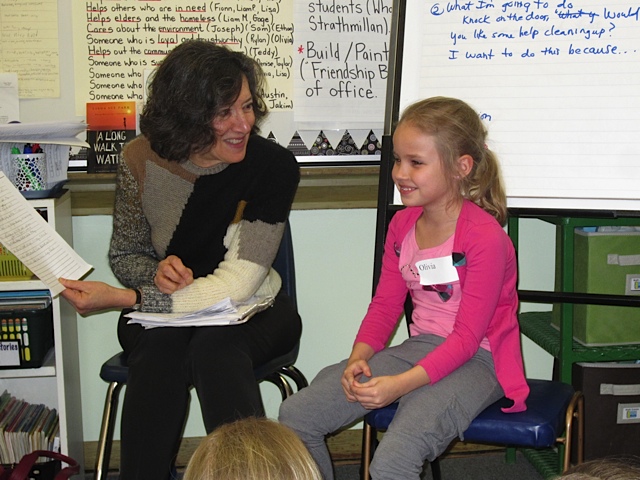The Writing Life
May 12, 2013 at 5:16 PM
I’ve been writing books for educators for twenty-five years, so you might think the process gets easier and faster with time and experience. Not so. Every time I start a new book, I am a bit terrified. Can I say something that will matter to readers? Will I be able to actually do it? Can I complete it within the required time frame? Do I know enough? Because of those nagging doubts, getting started is always the hardest part. In what seems like avoidance but in actuality is all part of the “getting ready to write” process, it usually takes me weeks and, often, months to get started. My mind is cluttered and disorganized, so I must have an orderly space to write. None of the usual piles all over my office, no messy desk, no other big daily commitments. Most of all I must have a detailed, cohesive, and organized plan, chapter by chapter, for the entire book. Who is my audience? What’s most important to say? How will the text be organized? How can I simplify and clarify the message but still give enough detail? How can I create something of compelling value? What do I want readers to come away with? For a short blog like this one, my plan takes the form of scribbled notes on a piece of paper, ideas I want to be sure to include. A writing plan gives me confidence and hope, even as I change much of it once I begin to write.

I’m midstream in the process of writing a new book for educators, so I’ve been thinking quite a lot about what it means to be a writer in our schools today with the expectations and demands of the latest standards, high stakes testing, and just finding the time to write in our overstuffed curriculum. Most of all, I believe we must value writing for its own sake because of all the marvelous rewards being a writer brings. If we write well, we have read avidly and have noticed and learned from what authors do and say. If we write well, we have learned patience and what it means to stick with something worthwhile even when there are no early rewards. If we write well, we have carved out daily time each day, and even when we didn’t want to, we sat in that chair for a sustained quiet time and rarely missed a day. If we write well, we have received effective feedback—even if that feedback has come mostly from our own continual rereading and rethinking. If we write well, we feel smarter because wrestling with thoughts and ideas and putting them together in a way no one else has ever done before brings a unique sense of accomplishment. I believe all of the above statements to be true for writers of all ages, including our students.
Here’s what I know for sure. Our present standards will eventually be replaced by newer ones; “better” tests will always be on the horizon; new demands will make it easy to crowd out writing for something “more important.” However, if we teach writing well, the students will do fine on the tests and will meet the standards. More significantly, we will be giving our students a lifetime gift that will bind their hearts and minds and enhance their communication and collaboration with others, regardless of their career path. Whether all students receive this precious gift depends in large part on us. We teachers must be discerning readers and writers who demonstrate the thinking, actions, and habits of practicing readers and writers if we are to effectively teach the craft and nuts and bolts of writing. Reading all kinds of texts with the lens of a writer as well as a thoughtful reader, taking notes and researching, organizing our information and thinking into a meaningful whole, backing up our pronouncements with facts and our own experiences, being able to communicate ideas clearly and persuasively, writing and publishing with an authentic audience and purpose, and doing all of this in our own style and voice is a crucial responsibility all of us educators must assume, regardless of the grade level or subject matter we teach.
Here’s what else I know for sure. Being a writer means accepting that the work is messy and frustrating. We can be stuck for hours with no coherent paragraphs forthcoming. We can be easily distracted and discouraged. We can be totally off message. And yet. The writing life is a worthwhile one if we stay with it. After multiple drafts and day after day of composing, thinking, rearranging, rethinking and just plain uninterrupted writing, ideas begin to cohere and pages begin to form that seem readable. When the writing flows, even for just a page, it’s magical. We have literally made visible by our own hand and mind something of potential value for a reader, even if that reader is ourself. All students deserve to experience that magic.